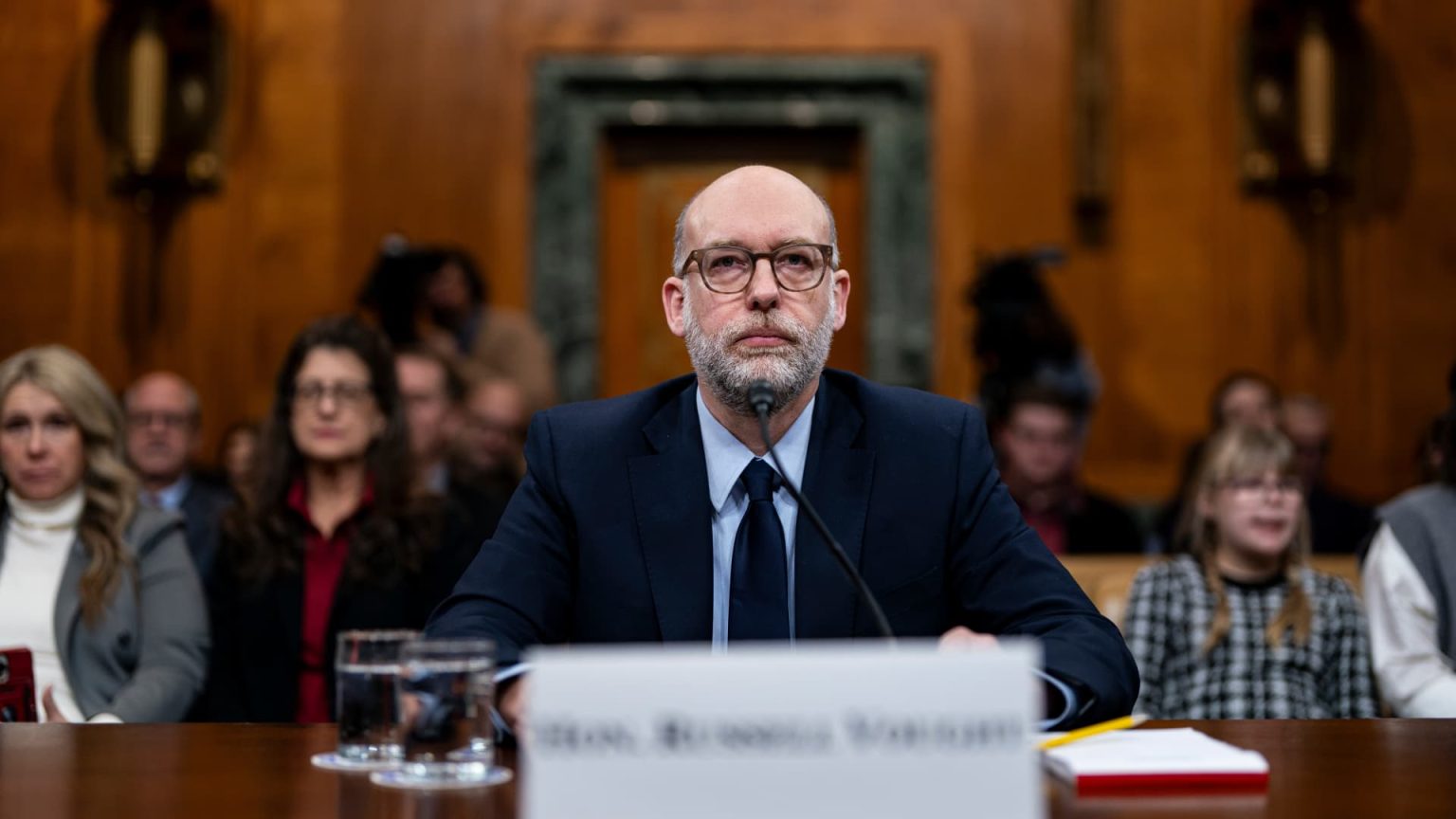The Consumer Financial Protection Bureau (CFPB) has recently taken significant action by dismissing multiple enforcement lawsuits initiated under previous leadership. The decision to drop these cases, which involved major corporations like Capital One and Berkshire Hathaway, signals a major shift in the agency’s approach following the appointment of new leadership. As criticism mounts from lawmakers, particularly regarding the timing of these dismissals during a crucial Senate nomination hearing, the implications for consumer protection remain a pressing concern.
| Article Subheadings |
|---|
| 1) Dismissal of Key Enforcement Actions |
| 2) Shift in Leadership and Its Immediate Effects |
| 3) Background of the Dismissed Lawsuits |
| 4) Impact of Dismissals on Consumers |
| 5) Political Reactions and Future Implications |
Dismissal of Key Enforcement Actions
On Thursday, the Consumer Financial Protection Bureau (CFPB) announced the dismissal of four significant enforcement lawsuits initiated during the tenure of former director Rohit Chopra. These cases pertained to allegations against major financial institutions such as Capital One, Vanderbilt Mortgage & Finance—owned by Berkshire Hathaway, Rocket Cos.’ unit Rocket Homes Real Estate, and the Pennsylvania Higher Education Assistance Agency. The filings indicated that the CFPB issued a notice of voluntary dismissal with prejudice, meaning these cases cannot be brought back in the future. This abrupt action has raised eyebrows about the bureau’s current objectives and priorities under new leadership.
Shift in Leadership and Its Immediate Effects
The recent changes at the CFPB follow the appointment of new interim director Russell Vought. The transition comes with a significant restructuring of the agency. Reports indicate that the CFPB, alongside plans initiated by Elon Musk‘s Department of Government Efficiency, has closed its Washington headquarters, leading to the termination of approximately 200 employees. The agency has instructed the remaining staff to halt most activities, casting doubt on the bureau’s capacity to execute its consumer protection mission effectively. This unsettling shift has prompted many industry insiders and former employees to speculate on what direction Vought and the agency will pursue moving forward.
Background of the Dismissed Lawsuits
Under former CFPB director Rohit Chopra, the agency made headlines for fiercely pursuing claims against various financial firms for harming consumers. In particular, allegations against Capital One included defrauding customers out of over $2 billion in interest payments, while Vanderbilt Mortgage was accused of disregarding warning signs that customers were unable to afford their loans. Rocket Homes faced accusations of providing illegal kickbacks to real estate agents, and the Pennsylvania Higher Education Assistance Agency was charged with improperly collecting loans. The dismissals not only highlight a drastic shift in enforcement priorities but also signify the potential abandonment of extensive investigations into malpractices exhibited by these institutions.
Impact of Dismissals on Consumers
The repercussions of the CFPB’s recent dismissals are substantial, particularly in terms of consumer protection. Legal experts and former CFPB enforcement officials underscore that by dismissing these cases with prejudice, the agency forfeits the opportunity to reclaim billions in potential restitution for affected consumers. Eric Halperin, former head of enforcement at the CFPB, indicated the seriousness of the situation by stating, “Just from the cases that were dismissed today, there’s billions of dollars in consumer harm that the CFPB will never be able to get back for consumers.” Such actions not only diminish trust in the CFPB but lay the groundwork for a beleaguering precedent whereby corporations may operate with reduced scrutiny.
Political Reactions and Future Implications
The dismissal of these cases has prompted significant political pushback, especially during a Senate hearing for Jonathan McKernan, President Trump’s nominee to lead the CFPB. Notably, Senator Elizabeth Warren expressed her concern over the timing of the dismissals, questioning whether the agency’s actions were an attempt to embarrass the nominee during a critical discussion on consumer protection. This incident highlights the ongoing tensions between regulatory agencies and politicians, as well as raising questions on how the CFPB plans to navigate future enforcement actions under increasing scrutiny from Congress.
| No. | Key Points |
|---|---|
| 1 | The CFPB has dismissed four significant enforcement lawsuits stemming from the previous director’s administration. |
| 2 | New interim director Russell Vought implements sweeping changes at the CFPB, including layoffs and a closure of its Washington headquarters. |
| 3 | Allegations against financial institutions included major claims of consumer fraud and malpractice. |
| 4 | By dismissing these cases with prejudice, billions in consumer restitution are forfeited by the agency. |
| 5 | Political reactions highlight tensions over the agency’s direction and transparency amidst ongoing negotiations in Congress. |
Summary
The recent dismissals by the CFPB illustrate a significant tectonic shift in regulatory priorities that may impact consumer protections across the nation. As the agency reorients under new leadership, the implications of these actions are likely to resonate widely, raising questions about the balance between consumer advocacy and corporate interests. With mounting scrutiny from lawmakers and consumers alike, the future of the CFPB’s effectiveness in safeguarding consumer rights remains uncertain.
Frequently Asked Questions
Question: What prompted the dismissal of the lawsuits by the CFPB?
The recent changes in leadership at the CFPB, under interim director Russell Vought, led to a shift in the agency’s priorities and approach to enforcement, resulting in the dismissal of several ongoing lawsuits.
Question: What are the ramifications for consumers due to these dismissals?
Many consumer protection advocates express concern that dismissing these lawsuits with prejudice forfeits the potential recovery of billions of dollars in consumer restitution, thereby exacerbating harm experienced by affected individuals.
Question: How has this decision been received politically?
The political reception has been mixed, with some lawmakers, including Senator Elizabeth Warren, openly criticizing the timing and implications of the dismissals, highlighting a potential conflict between the agency’s mission and its leadership’s agenda.


